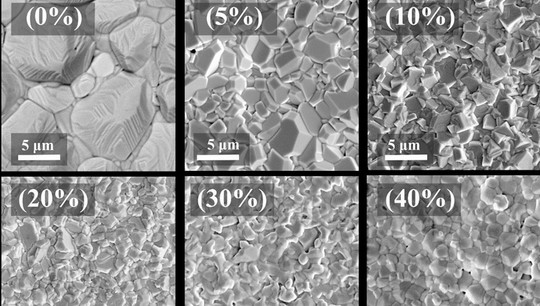Ural Federal University Experts Synthesize Material With Unusual Properties
Employees of the Institute of Hydrogen Energy of the Ural Federal University and the Institute of High Temperature Electrochemistry of the Ural Branch of the Russian Academy of Sciences have created a promising material for hydrogen energy devices. The new material has high proton conductivity and unusual properties (depending on the degree of doping). It can be used as an electrolyte (at high doping levels) and as an electrode (at low doping levels) in solid oxide fuel cells and electrolyzers. A description of the new material and the results of the study are presented in the Journal of Power Sources.
“We synthesized an electrolyte material with a perovskite structure based on barium stannate. By modifying barium stannate with different amounts of yttrium, we obtained materials with curious properties. At high degrees of substitution of tin for yttrium, the materials are ionic (protonic) conductors, which makes them promising electrolytes. At the same time, the introduction of a small amount of yttrium in the composition leads to a pronounced electron transport. This allows these materials to be used as electrodes for the same electrochemical devices, both solid oxide fuel cells (SOFC) and electrolyzers. This opens up wide possibilities for applications in electrochemical converters, in particular for oxygen-, hydrogen- and water-permeable membranes,” explains Georgy Starostin, co-author and Research Engineer at the Hydrogen Energy Laboratory of UrFU.
Barium stannate-based materials are used as sensors for ammonia, formaldehyde, ethanol and several other gases. They are also used as electrodes for solar cells and as passive or active components in optoelectronics. The goal of the Ural chemists is to obtain compositions with new properties based on barium stannate. These compositions will be suitable for electrolyte systems with improved properties required for electrochemical devices, for example, increased ionic conductivity.
“The search for new electrolytic materials with improved functionality remains an important area of modern materials science and high-temperature electrochemistry. The selection of oxide materials with pronounced proton conductivity is extremely important because they are used to create electrochemical devices that are extremely efficient in energy conversion. Barium stannate is a promising material in this area,” adds Georgy Starostin.

